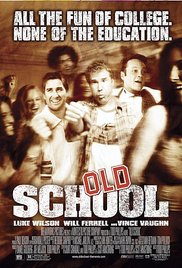Friday’s quiz was the last before the ultimate quiz: the bar exam begins tomorrow. Many recent grads read this blog. Good luck to all who are taking the exam!
Spoiler alert: the answers follow the Honor Roll. If you want to read the questions before you review the answers, go HERE. Question 5 spurred quite a bit of discussion, even among people who didn’t enter the quiz. Last minute hint: remember….this is an ethics blog.
HONOR ROLL
Perfect Score
Honors (4 out of 5)
- Matt Anderson, Pratt Vreeland Kennelly Martin & White
- Matt Little, Law Offices of Matthew Little
- Lon McClintock, McClintock Law Office
- Hal Miller, First American
- Emily Tredeau, Office of the Defender General
ANSWERS
Question 1
Two years ago, Paralegal worked for Attorney. Attorney represented Green in her divorce from Gold. Paralegal did substantial work on the Green file.
Paralegal has a new job. Now, Paralegal works for Lawyer. Lawyer represents Gold.
A post-judgment issue has arisen between Green and Gold. Which is most accurate under the Vermont Rules of Professional Conduct?
- A. Paralegal’s conflict is imputed to Lawyer. Lawyer is disqualified, unless Green gives informed consent, confirmed in writing.
- B. Paralegal’s conflict is not imputed to Lawyer, but Paralegal should be screened from the Green & Gold matter. See, Rule 1.10, Comment [4]
- C. Nothing in the Rules of Professional Conduct addresses this situation.
- D. Go Cats Go!
Question 2
Lawyer knows that she has earned a portion of the funds that she is holding in her trust account. She intends to reconcile the trust account & withdraw the earned fees as soon as she can get around to it. Work is busy.
Although the word does not appear in the Rules of Professional Conduct, what is the common name used to describe Lawyer’s violation of the Rules?
COMMINGLING
Question 3
Rule 1.6(a) prohibits a lawyer from disclosing information relating to the representation of a client without the client’s informed consent or unless the disclosure is impliedly authorized to carry out the representation. Rule 1.6(c), however, permits disclosure of otherwise protected information “to establish a claim or defense . . . in a controversy between the lawyer and the client [OR] to respond to allegations in any proceeding concerning the lawyer’s representation of the client.” Rule 1.9(c) operates to apply Rule 1.6 to former clients.
Former Client (“FC”) posted a negative online review of Lawyer on Yelp. Lawyer intends to reply with a post that would include information covered by Rule 1.6(a). Most courts and bar associations that have addressed the issue have concluded that:
- A. FC’s post impliedly authorizes Lawyer’s reply;
- B. FC’s post is a “controversy”, thus Rule 1.6(c) authorizes Lawyer’s reply;
- C. Given the nature of social media, FC is deemed to have given informed consent to any potential reply;
- D. Lawyer’s reply would violate Rule 1.6(a). (I’ve pasted in an outline below the answer to question 5)
Question 4
Attorney calls me with an inquiry. I listen, then reply: “the Comment to the rule is clear: your representation that you’re required to do so should be sufficient. You shouldn’t have to say anything more.”
I’m looking for a rather specific answer here: what type of pleading did Attorney call to discuss?
MOTION TO WITHDRAW. See, Rule 1.16, Comment 3
Question 5
The week started with President’s Day, so I’ll finish with this:
Of all the lawyers who have argued cases before the United States Supreme Court, only seven (7) were either a past or future President of the United States. Name the last lawyer who was either a past or future President to argue a case before the US Supreme Court.
RICHARD NIXON argued Time, Inc. v. Hill, 385 US 374 (1967)

***************************
Here’s the outline I use for issues related to Online Reputation Management
Disciplinary Cases
In re the Matter of David J. Steele, Ind. Supreme Court No. 49S00-1509-DI-527 (Ind. 2015) (among other violations, Indiana lawyer disbarred for, by his own description, “actively manipulate[ing his] Avvo reviews by monetarily incentivizing positive reviews, and punishing clients who wr[o]te negative reviews by publicly exposing confidential information about them.” Responses to the negative reviews included numerous false statements)
• People v. James C. Underhill Jr., 2015 WL 4944102 (Colo. 2015) (Colorado lawyer suspended for 18 months for, among other violations, disclosing confidential information in response to internet complaints about his fees and services)
• In the Matter of Tsamis, Ill. Att’y Registration and Disciplinary Comm’n, Comm’n No. 2013PR00095 (Ill. 2014) (Chicago lawyer reprimanded for revealing confidential information when responding to a negative review on the legal information website Avvo)
• In the Matter of Margrett A. Skinner, 295 Ga. 217, 758 S.E.2d 788 (Ga. 2014) (Georgia lawyer publicly reprimanded for improper disclosures in response to negative online review)
• In re Petition for Disciplinary Action Against Allison Wiles Maxim Carlson, Supreme Court A13-1091 (Minn. 2013) (Minnesota lawyer reprimanded for falsely posing as a former client of opposing counsel and posting a negative review about opposing counsel on a website. See also Petition for Disciplinary Action)
• In re Quillian, 20 DB Rptr 288 (Or. 2006) (Oregon lawyer suspended for 90 days for publishing confidential information about former client in listserv post)
Ethics Opinions
• Wash. St. B. Ass’n, Advisory Op. 2014-02 (2014) (lawyer who claims information on a website listing becomes responsible for ensuring that info in the list conforms to the RPC; lawyer must delete false or misleading comments or endorsements attached to lawyer’s profile; and lawyer may endorse another lawyer only if the endorsement is accurate)
• B. Ass’n of San Francisco, Ethics Op. 2014-1 (2014) (stating that while lawyers may respond to an online review, the duty of confidentiality still prevents any disclosure of confidential information without the client’s consent)
• Pa. B. Ass’n, Formal Op. 2014-300 (2014) (lawyer may not give detailed response to on-line criticism of the lawyer by a client; lawyers also may just ignore the on-line criticism; the self-defense exception is not triggered by a negative on-line review)
• N.Y. St. B. Ass’n, Op. 1032 (2014) (lawyer may not disclose confidential client information solely to respond to former client’s criticism of the lawyer posted on a lawyer-rating website)
• Los Angeles County B. Ass’n, Ethics Op. No. 525 (2012) (lawyer may publicly respond to comments published by a former client if (1) no confidential information is disclosed, (2) the response does not injure the former client in any matter involving the prior representation, and (3) the response is proportionate and restrained)
• S.C. B, Ethics Advisory Op. 09-10 (2010) (once lawyer claims website listing, information contained therein are subject to rules governing communication and advertising; lawyer may invite peer reviews and comments but such comments are governed by the RPC and the lawyer is responsible for the content)
Other Sources
• Joseph A. Corsmeier, Colorado Lawyer Suspended for 18 Months for Disclosing Confidential Information in Response to Client Internet Criticism, LAWYER ETHICS ALERT BLOGS (Aug. 28, 2015 4:02 PM), https://jcorsmeier.wordpress.com/category/lawyer-revealing-client-confidential-information-on-internet/
• Cassandra Burke Robertson, Online Reputation Management in Attorney Regulation, Social Science Research Network (May 1, 2015), http://papers.ssrn.com/sol3/papers.cfm?abstract_id=2611326## (forthcoming in the Georgetown J. of Legal Ethics)


